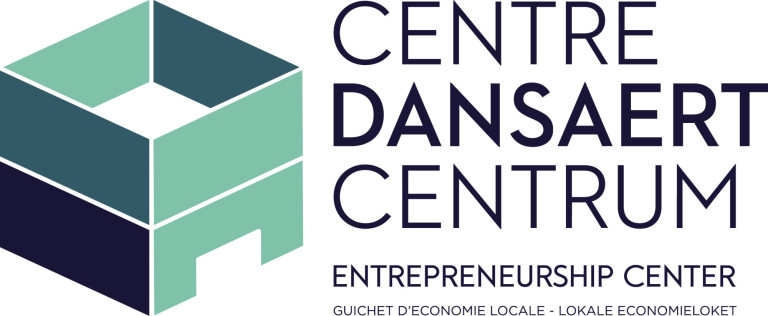As an entrepreneur or future entrepreneur in Brussels, it is essential to understand the different forms of financial support available to help you launch or grow your business. This guide sets out the basic principles of the subsidies and assistance that you can claim in the Brussels-Capital Region. With an understanding of these principles, you will be able to better navigate the different options and maximise your chances of success.
Principle 1: Subsidies at different levels of governance
In Belgium, subsidies and financial assistance originate from different levels of governance. The majority of grants for companies are awarded at the regional level. In Brussels, this means that the Brussels-Capital Region is the main source of subsidies for entrepreneurs. However, assistance may also be available at the municipal, federal and European levels. For example, a Brussels entrepreneur may receive a regional subsidy for an investment while also receiving European funding for a research project. It is therefore important to check the different possible sources to maximise financing.
Principle 2: Structural and one-off subsidies
It is important to know that there are structural subsidies and one-off subsidies.
- Structural subsidies: this assistance is continuously available and companies can claim it if they meet the eligibility conditions and follow the administrative procedure. For example, an investment grant for the purchase of equipment is a structural grant. Provided that the company meets the criteria, it can apply for this grant.
- One-off subsidies: this assistance is generally offered in the form of calls for projects. It is available for a limited period and requires an active application from interested companies. For example, a call for projects for innovative solutions in the field of circular economy is a one-off grant. Companies have to submit a detailed proposal and be selected to receive this grant. You can find open calls for projects in our dedicated section.
Principle 3: Subsidies for different target groups
It is also important to know that there is assistance intended for project leaders (those that have not yet created their company) and assistance intended for existing companies.
- Assistance for project leaders: it aims to promote entrepreneurship and may concern the training required for the creation of the business, personalised advice or initial equipment purchases. For example, a future entrepreneur can receive a subsidy in order to undertake business management or language training, or to hire a consultant for market research. This assistance is for the most part conditional on support from an approved organisation.
- Assistance for existing companies: it is intended for companies that are already established to support them in their growth, their innovation or their internationalisation. For example, a company can receive a subsidy in order to invest in equipment or to digitalise its management tools. An existing company means both legal entities (limited liability company, cooperative company, etc.) and individuals (self-employed as a main or secondary occupation).
Principle 4: Eligibility conditions need to be checked
Each grant or subsidy has its eligibility conditions. These conditions may vary according to:
- the target group: for example, project leaders or existing companies, social enterprises, etc.
- the business sector (e.g. retail, technology or production businesses): certain grants are only accessible to certain business sectors. For the most part, business sectors are defined using the NACEBEL codes registered with the VAT authority
- for the size of the company (VSE, SME or large company)
- For the company's age: certain grants offer increased sums based on various criteria including the company's age. For example, start-up companies (i.e. less than four years old) receive increased sums.
Therefore, it is essential to carefully read the criteria for each grant to ensure that your company is eligible. This helps ensure that no time is wasted applying for assistance that does not match your company's profile.
Principle 5: Procedures that vary depending on the subsidy
Always carefully check the steps involved in making your grant application, otherwise, you risk being refused a grant just because you have not followed the administrative procedure.
For example, for certain grants, you should not make any payment (even a deposit!) or sign a quote before sending the application, while, for other grants, the application is made after the expenditure is incurred.
Another example: the grant for self-employed people that is intended for those who are getting started requires that you are first supported by an approved organisation before getting your company number.
Principle 6: Eliminatory award conditions
A basic principle common to all public assistance is that the award conditions are eliminatory. To receive a subsidy, it is necessary to meet all the award conditions.Thus, if you meet nine out of 10 required conditions, you are ineligible for the grant. It would therefore be a waste of time to complete an application.
Some of these conditions are factual in nature and your company either meets them or it does not. For example:
- having your company's place of business in one of the 19 municipalities of the Brussels-Capital Region;
- the age of your company (date of registration with the Crossroads Bank for Enterprises, BCE) can be a deciding factor;
- demonstrating high potential for innovation;
- incorporating circular economy concepts into your project;
- being a new employer;
etc.
It should be noted that it is essential to be well aware of the conditions for the repayment of each grant. For a lot of public assistance, one of the award conditions is actually to not cease operations within a set period (e.g. investment grant: five years)
Principle 7: One grant per expense
A basic rule to remember is that you may not apply for two grants for the same expense. This means that each subsidy must correspond to a specific expense, and it is not possible to accumulate several grants to pay the same invoice or finance the same investment. This rule aims to ensure equitable and transparent use of public funds.
Principle 8: Do not underestimate indirect public assistance
Finally, there is also a range of assistance that is not directly granted in the form of cash but which offers benefits that are just as valuable. For example, reductions in social security contributions for hiring new employees or tax exemptions for certain investments can substantially reduce a company's operating costs. These non-financial benefits can often represent a substantial saving and are an element that should not be overlooked in the strategy for growing your company.
Conclusion
Understanding these basic principles enables you to be better equipped to explore the different subsidies that are potentially available for your company. Take the time to analyse the opportunities on offer to you, to check the eligibility conditions and to properly follow the steps set out in the procedures. Being well-informed is essential before applying for a subsidy. Do not hesitate to seek help from our advisers to support you in this process.
Who can help me ?



